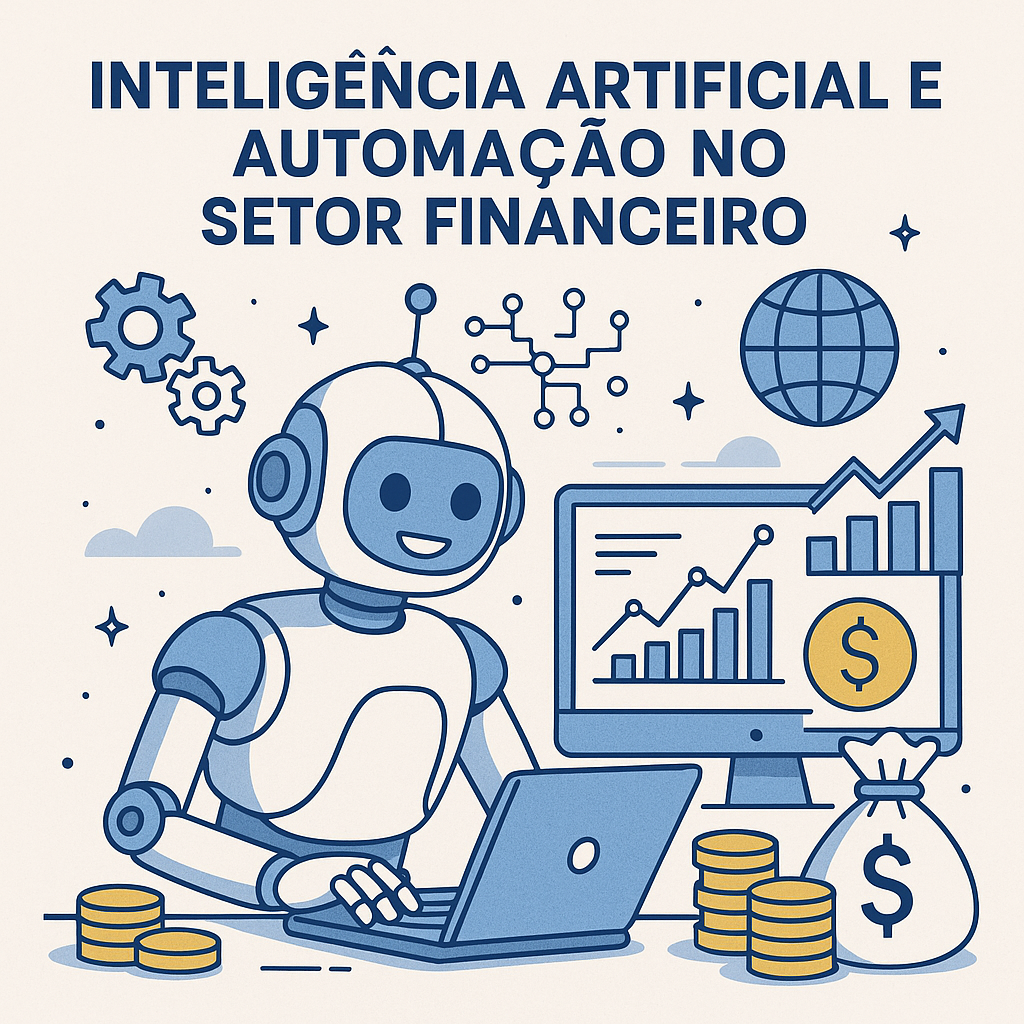
Artificial Intelligence (AI) and automation are profoundly transforming the global financial sector. From banks to fintechs, these technologies are driving agility, security, and personalization in a traditionally conservative and highly regulated industry.
In this article, we’ll explore how AI and automation are being applied in the financial sector, their benefits, main challenges, and what to expect for the future.
What is Artificial Intelligence in the Financial Context?
Artificial Intelligence is a branch of computer science that aims to create systems capable of performing tasks that typically require human intelligence, such as learning, decision-making, pattern recognition, and understanding natural language.
In the financial sector, AI is used for:
- Market predictive analysis
- Fraud detection
- Automated customer service (chatbots and voicebots)
- Credit analysis
- Automated investment management (robo-advisors)
The Role of Automation in Finance
Automation refers to the use of systems to perform repetitive tasks without human intervention. This ranges from internal processes like account reconciliation to more complex activities like real-time transaction monitoring.
Robotic Process Automation (RPA) is increasingly used by financial institutions to eliminate manual tasks and reduce operational costs.
Practical Applications of AI and Automation in Finance
1. Fraud Detection
With AI algorithms, it’s possible to identify suspicious behavior patterns in real time and prevent financial fraud before it occurs. These systems continuously learn and improve their accuracy over time.
2. Smarter Credit Analysis
Institutions are using AI to assess credit risk more accurately, considering not only traditional data (such as income and banking history) but also alternative information like digital behavior and social media activity.
3. Robo-Advisors
These are automated financial advisors that help investors build personalized portfolios based on their goals and risk profile. They use AI to rebalance investments efficiently.
4. Chatbots and 24/7 Support
With AI-powered chatbots, banks and fintechs can offer continuous customer support, providing fast and personalized responses.
5. Anti-Money Laundering (AML)
Automated systems help identify unusual transactions and trigger alerts, supporting the fight against money laundering and terrorism financing.
Benefits of AI and Automation in Finance
- Cost Reduction: Less need for human labor in repetitive tasks.
- Operational Efficiency: Faster processes with fewer errors.
- Security and Reliability: Improved fraud detection and regulatory compliance.
- Customer Experience: More agile and personalized service.
- Data-Driven Decisions: Predictive analytics to guide strategies.
Challenges and Risks
Despite the benefits, implementing AI and automation in the financial sector brings significant challenges:
1. Data Privacy and Security
AI-based systems require large volumes of data. Ensuring the privacy and security of this data is a legal and ethical obligation.
2. Algorithmic Bias
AI models can reflect biases present in their training data, leading to unfair decisions, especially in credit analysis.
3. Job Displacement and Role Transformation
Automation can replace repetitive tasks, pushing professionals to adapt and develop new skills.
4. Regulatory Compliance
AI must comply with strict financial sector regulations. Ensuring algorithm transparency remains a challenge for many institutions.
The Future of AI in the Financial Sector
The use of Artificial Intelligence and automation is expected to grow significantly in the coming years. With the advancement of generative AI, financial systems will offer even more intelligent and personalized services, such as:
- Virtual financial advisors with advanced natural language skills
- Highly accurate predictive analytics
- Real-time automated compliance processes
Additionally, integration with blockchain, open finance, and IoT (Internet of Things) promises a new era of innovation in the financial sector.
Conclusion
Artificial Intelligence and automation represent a revolution in the financial industry, delivering benefits ranging from cost reduction to improved customer experience. However, it’s essential for institutions to adopt these technologies responsibly, ensuring transparency, ethics, and data security.
Digital transformation is inevitable — and those who know how to use it intelligently and strategically will be one step ahead in the financial market of the future.


